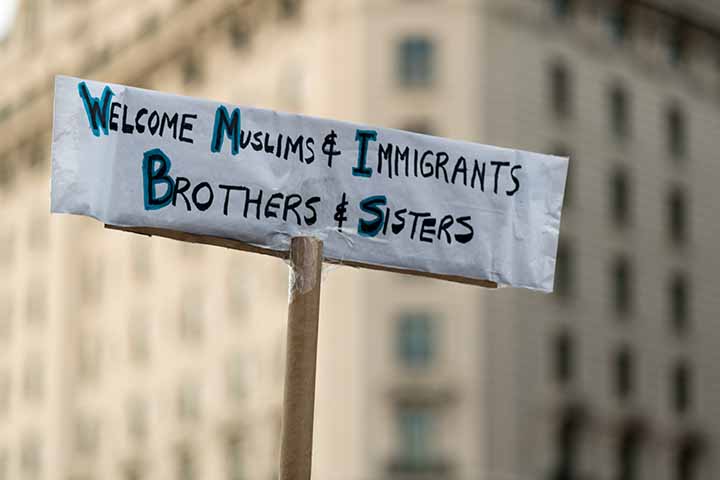Immigration ban hits close to home
Earlier this year, America faced a seismic shift in its apparent core values. The world rocked as in the first few weeks of his presidency, among scandal and criticism, President Donald Trump signed his first executive order – banning immigrants from seven predominantly Muslim nations. Critics have ridiculed the ban as a thinly veiled attack on people fleeing violence in the Middle East while supporters have hailed the action as a triumph of national security. The nations Iraq, Iran, Syria, Yemen, Sudan, Libya and Somalia are affected by the ban.
Junior Abdullah Rouri, a Sunni immigrant from Morocco, had some unique insights on the ban. He made special note of his family’s integration into American society.
“We don’t practice the things we used to in Morocco, like praying in the streets,” Rouri said.
While his family was not directly affected by the ban, he did state that he was worried about the future of his kin.
“I have family and friends who live in other middle eastern countries,” he said. “While they currently don’t want to immigrate, if Trump continues with this path, then I don’t know what’s going to happen to my friends and family. I am kinda worried.”
When questioned on the cause of the ban, he said that “knowing how Trump is, I don’t think it’s about national security.”
Others have pointed out how the ban validates many of the claims of extremists in the area. The Organization of Islamic Cooperation, a 57-nation body that’s based in Saudi Arabia, is worried that the ban tells the public what terrorists have been saying for years – that the U.S. is engaging in a holy war on Islam.
Senior Fady Youssef, a Christian immigrant from Egypt, was also affected.
“I had a few uncles trying to come over,” he said. “They were stopped at the airport.”
However, Youssef professed a belief in the American system.
“I’m not particularly worried about it, there are checks and balances,” he said.
Youssef had an interesting perspective on the ban however, he thinks the ban will be ineffective, but doesn’t know if he wants it to be. As a religious refugee fleeing persecution, he “knows what it’s like to try and get into a different country,” but at the same time he doesn’t want to risk anything.
Another voice to be heard was senior Lama Ahmed, whose father immigrated here when he was 23. While she may have been born in Texas, she had very strong feelings on the ban.
“My brother-in-law’s parents are in Palestine, which isn’t under the ban, because America doesn’t even acknowledge them as a country,” Ahmed said. “They tried going through Jordan, but it’s still very difficult to get here. One of my friend’s grandparents were one of the first people detained here.”
When asked about the ban and it’s causes, she stated that “I think the ban’s stupid because ISIS has so much power that they could get here anyways going through other countries.”
She’s very rooted to her culture and religion, pointing out that she visits the mosque every Friday.
“This ban is only persecuting Muslims,” she said. “Especially as Trump said that Christian refugees take precedent over Muslim ones. It’s just disgusting, honestly.”
Ahmed has participated in drives for Syrian refugees before.
“It’s one of the most humbling experiences,” she said. “We went to the house of a little girl and her family recently, and they have nothing, but they still offered us food.”
They moved because the daughter of the family was injured in an ambush and lost her leg.
“It’s just so sad, these people are fleeing ISIS and Russia and the U.S.,” Ahmed said.
The ban, according to her, is not about national security.
“It’s just spreading hate and fear, honestly,” she said.

Hello, Comrades! My name is Declan Quinn and I'm a returning staffer of the senior class. I'm in AcDec and Art Club but trust me, I'm a fun communist.


